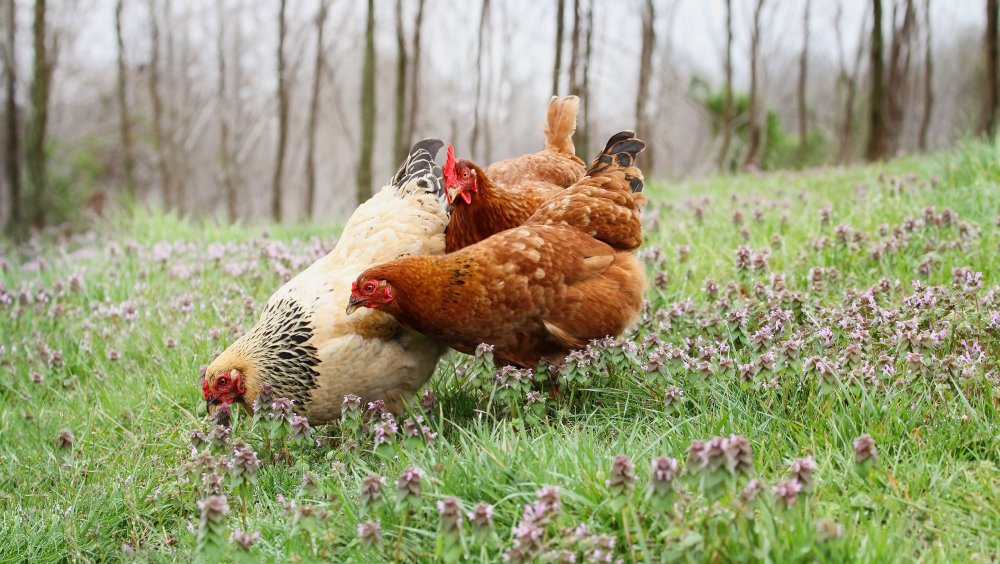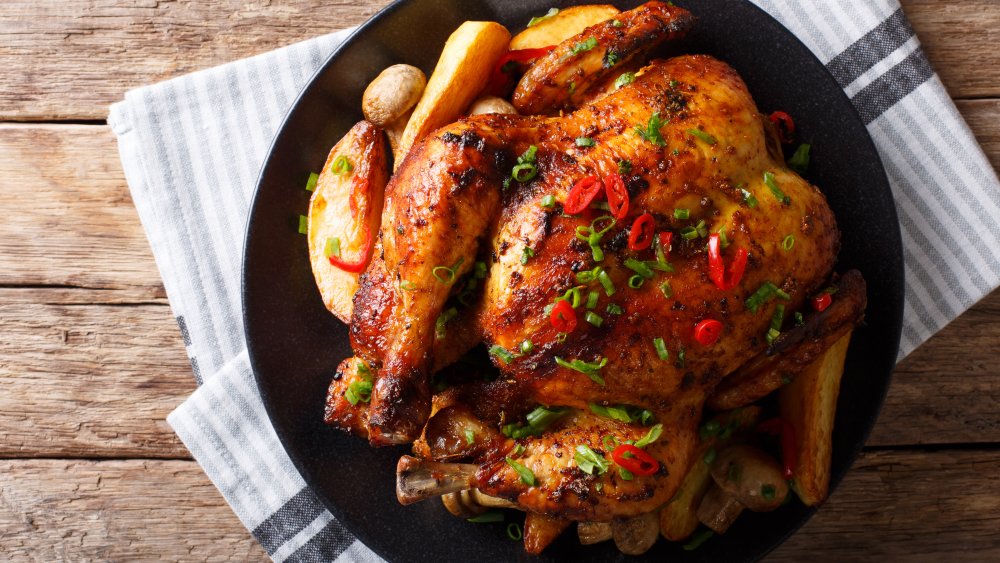Mistakes You're Making When Cooking A Heritage Chicken
Heritage chickens are making a comeback after falling out of favor. Unlike modern chickens raised for meat, these old-timey breeds are raised on pasture instead of housed inside industrial cages. While stretching their legs and foraging, sometimes for a full 16 weeks, heritage chickens develop a markedly different physique, and much more flavor, than commercially raised birds, which may be ready for your dinner plate in as little as 42 days (via Food & Wine).
Notably, heritage birds are lean. In the kitchen, their well-exercised muscles can lead to many cooking pitfalls. One Amazon reviewer of Emmer & Co.'s heritage chicken said, "These chickens are the toughest, stringiest chickens I have ever cooked." Like most modern cooks, we're guessing the less-than-impressed reviewer was used to the plump corn-fed chickens ubiquitous to the grocery store.
Heritage breed birds are a specialty item and should be treated as such. Don't slap a slender chicken breast on the grille expecting something tender and juicy in return. Chopped champion Silvia Baldini told Food & Wine, "The fibers in the meat are very strong and difficult to break down." This calls for low and slow cooking.
Cook heritage chicken low and slow
Heritage chickens simply cannot be rushed in the kitchen. A big mistake in cooking these specialty breeds is applying too much heat, and too quickly. Turn it down a notch and cook your heritage chicken at a low temperature with plenty of moisture. Traditionally speaking, this means putting your chicken in the stew pot. When simmered till tender, the meat will fall off the bone. It can then be used in soups or other recipes (via Modern Farmer).
More mature (aka tough) birds really shine when baked with added moisture in a Dutch oven. Modern Farmer recommends placing your bird, breast-side down, in a heavy, lidded pot along with chopped onions, garlic, water, and butter before roasting in a 325 degree Fahrenheit oven. Baldini says to let the chicken rest for 10 minutes before cutting. That way the delicious juices are sealed within the meat.
If you've purchased a young heritage chicken straight from the farmer, it may be suitable for sauteing, roasting, or grilling. Don't make the mistake of omitting additional fat, though. Adding butter, oil, or ghee is key to achieving a crispy skin when roasting. Done right, the flavor of heritage chicken can't be beat. Los Angeles chef Curtis Stone told Food & Wine, "It's incredible. It's unlike any other chicken I've ever eaten."

